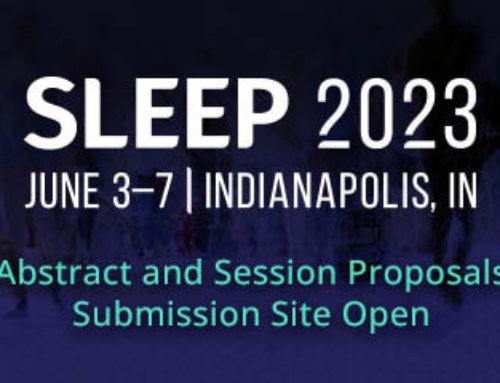WESTCHESTER, Ill.– Coffee is an effective countermeasure to sleepiness for both young and middle-aged people. However, napping is more efficient in young than in middle-aged people, according to a study published in the December 1 issue of the journal SLEEP.
Patricia Sagaspe, PhD, of the Clinique du Sommeil at CHU Pellegrin in Bordeau, France, studied 24 people, 12 young (between 20-25 years of age) and 12 middle-aged (between 40-50 years of age). Participants first drove 125 highway miles in the daylight, between 6:00 and 7:30 p.m. Then, in a test of the effects of coffee and napping on night-time driving, participants drove another 125 miles between 2:00 and 3:30 a.m. after having a cup of coffee with 200 mg of caffeine, a placebo (a cup of decaffeinated coffee with 15 mg of caffeine) or a 30-minute nap.
Inappropriate line crossings, self-perceived fatigue and sleepiness and polysomnographic recordings were analyzed in the study.
According to the results, compared to daytime, after a placebo, the number of inappropriate line crossings was significantly increased. Compared with a placebo, both coffee and napping reduced the risk of inappropriate line crossings in young and middle-aged participants. A significant interaction between age and condition showed that napping led to fewer inappropriate line crossings in younger than in middle-aged participants. During napping, young participants slept more and had more delta sleep than middle-aged participants.
Self-perceived sleepiness and fatigue did not differ between age groups, but coffee improved sleepiness, whereas napping did not.
“The potential effect of age on response to sleepiness countermeasures should be considered in populations exposed to extended wakefulness,” said Dr. Sagaspe. “According to their age or individual physiology, subjects should implement their best countermeasures to sleepiness at the wheel.”
On average, most adults need seven to eight hours of sleep each night to feel alert and well-rested.
The American Academy of Sleep Medicine (AASM) offers the following tips on how to get a good night’s sleep:
- Avoid foods or drinks that contain caffeine, as well as any medicine that has a stimulant, prior to bedtime.
- Follow a consistent bedtime routine.
- Establish a relaxing setting at bedtime.
- Get a full night’s sleep every night.
- Do not go to bed hungry, but don’t eat a big meal before bedtime either.
- Avoid any rigorous exercise within six hours of your bedtime.
- Make your bedroom quiet, dark and a little bit cool.
- Get up at the same time every morning.
Those who believe they have a sleep disorder should consult with their primary care physician or a sleep specialist.
SLEEP is the official journal of the Associated Professional Sleep Societies, LLC, a joint venture of the AASM and the Sleep Research Society.
SleepEducation.com, a patient education Web site created by the AASM, provides information about various sleep disorders, the forms of treatment available, recent news on the topic of sleep, sleep studies that have been conducted and a listing of sleep facilities.
For a copy of this article, entitled, “Aging and Nocturnal Driving: Better with Coffee or a Nap? A Randomized Study," or to arrange an interview with an AASM spokesperson regarding this study, please contact Jim Arcuri, public relations coordinator, at (708) 492-0930, ext. 9317, or jarcuri@aasm.org.
# # #








